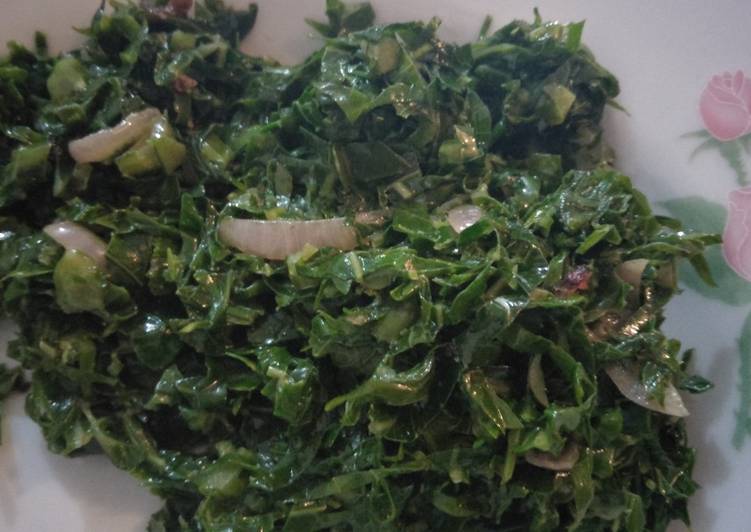How to Special Delicious Mix Terere with kales

How to Special Delicious Mix Terere with kales Delicious, fresh and tasty.
Mix Terere with kales. Prepare the ingredients by chopping terere and kales. Chop onions and put them in a pan with oil to be fried. Mixed terere and sukuma wiki(pig weed and kale) its will taste yummy, when you eat the second day. the purpose of this dish is to add milk each day you want to eat or warming it.
Add more flour to get a semi solid mix n turn over a few tines using a flat wooden spoon.
Add a touch of water if too dry..
At some point I added white unga I was afraid my family would not eat.
You can cook Mix Terere with kales using 4 ingredients and 5 steps. Here is how you achieve that.
Ingredients of Mix Terere with kales
-
Prepare 1 bunch of terere.
-
Prepare 1 bunch of kalea.
-
Prepare 5 tablespoon of oil.
-
Prepare to taste of Salt.
I served with terere and minced meat.
Our reporter Niloufer Fali joined chef Joseph, as they carry us through the process of cooking whole fish tilapia and kales served with ugali.
Category News & Politics Add the shredded kale to the onions and mix well.
The cream will thicken slightly, making for a deliciously rich creamed kale and onions.
Mix Terere with kales instructions
-
Prepare the ingredients by chopping terere and kales..
-
Chop onions and put them in a pan with oil to be fried.
-
Then add mix terere and kales stir.
-
Add salt..
-
Serve hot.
As a result, drinkers feel a sustained energy, clarity of mind, and the general well being characteristic of mate.
Production of traditional African vegetables is mainly on a subsistence basis.
These vegetables are often intercropped and rarely occupy a significant proportion of the farm.
See more ideas about Yerba mate, Yerba, Paraguay food.
Local Names: Terere, Mchicha in Swahili, Ododo in Luo, Sikukuu or Chepkuratian in Pokot, Lookwa or Epespes in Turkana, and Ekwala in Teso.

